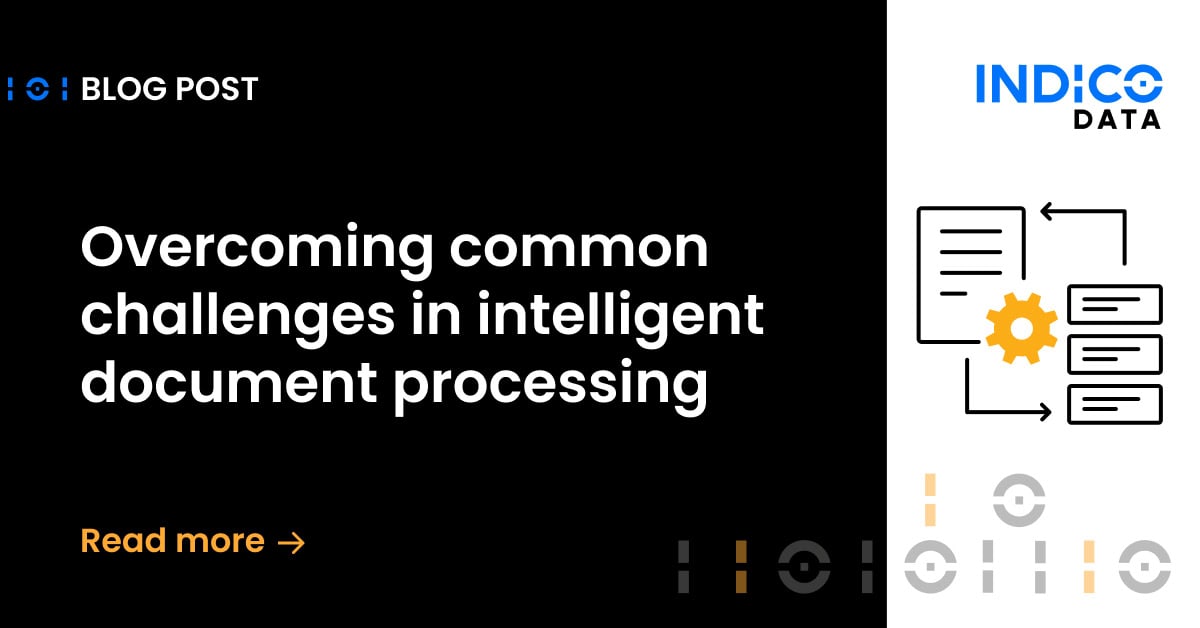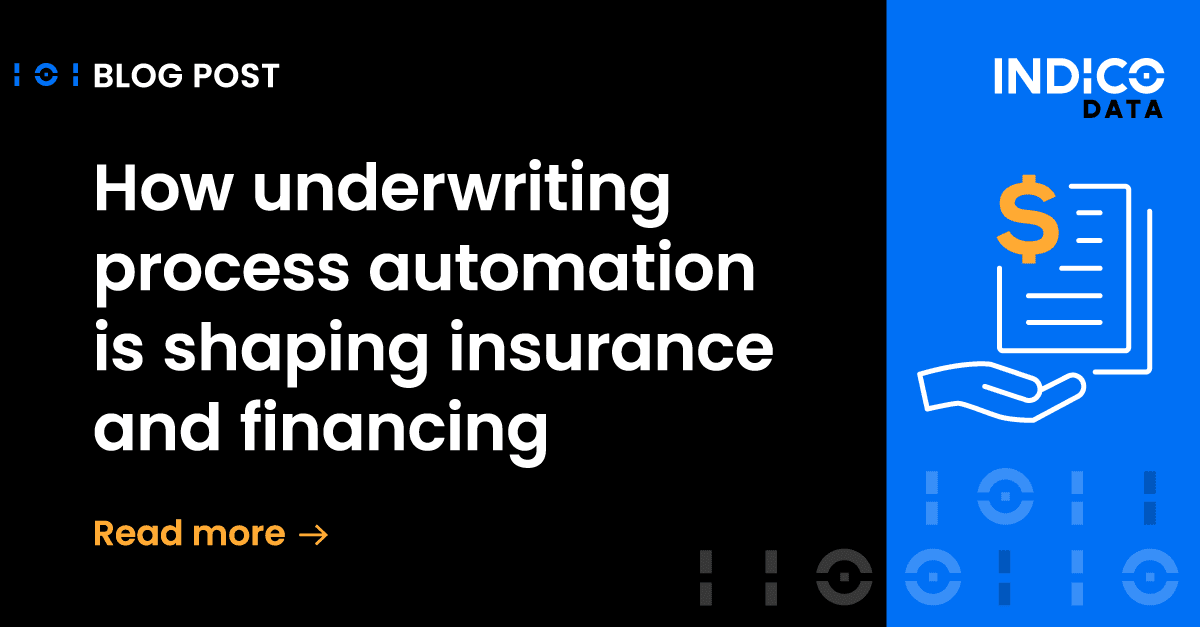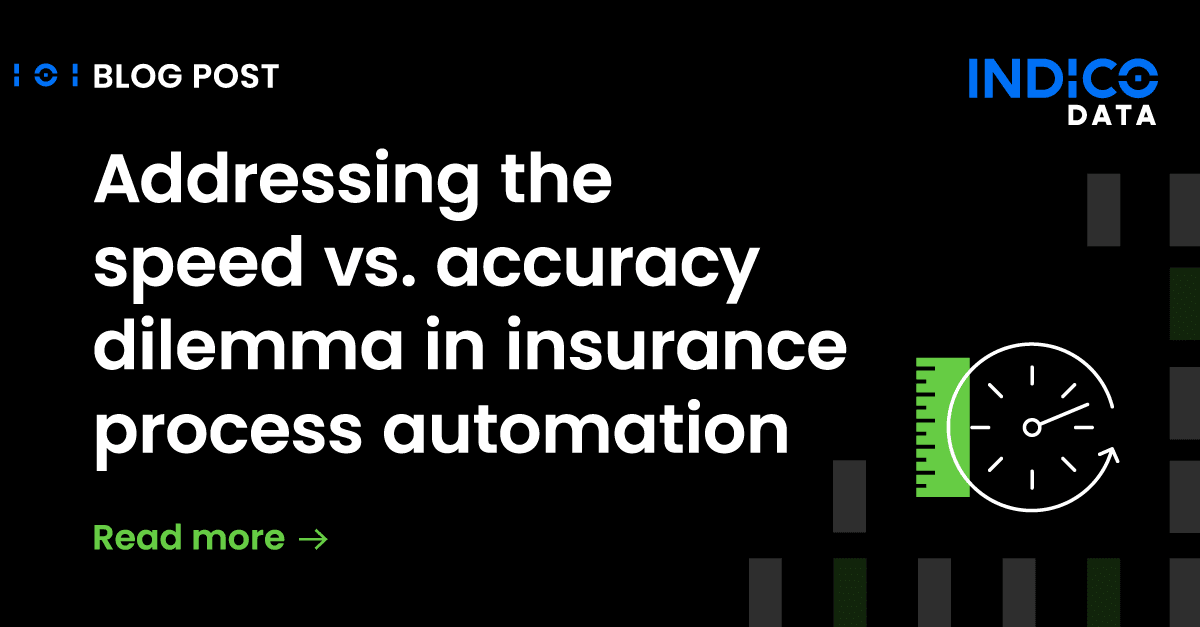In our never-ending search for intelligent process automation software use cases, commercial banking automation is among the most complex we’ve found. From banking financial document automation to issuing commercial mortgages to meeting stringent anti-money laundering and “know your customer” requirements, commercial banking processes involve untold numbers of documents, making them perfect candidates for automation.
For years commercial banks have been seeking ways to automate processes, by using robotic process automation (RPA), such as for customer onboarding. RPA is useful in automating processes that involve the same steps over and over, typically with highly structured documents.
But once banks tackle achieve what they can from their RPA banking use cases, they find themselves wanting a more intelligent banking automation solution, one that can deal with the many unstructured documents involved in various processes. In this post, we’ll look at three such use cases for intelligent commercial banking automation solutions.
Related Content: How Automation Eases the Pain of Commercial Bank Customer Onboarding
Automating the commercial mortgage process
Let’s first consider the commercial mortgage process. All commercial banking is about assessing an applicant’s creditworthiness to ensure the lender can make money while managing risk. At the commercial level, it’s a lengthy process involving reams of documentation, from W-2s and bank statements to tax returns and business plans.
Traditionally, all of these documents are reviewed by humans, who extract key data points and enter them into spreadsheets or other downstream systems for analysis. It’s a cumbersome, time-consuming process.
A poll conducted by Moody’s Analytics asked bankers what their biggest challenge was initiating the commercial loan process. More than half (56%) said it was the manual collection of data and subsequent back and forth with the client.
An intelligent commercial banking automation solution helps the bank in many ways. Most banks now have an online application process. As a first step, the IPA tool could classify all documents to make sure all required documents have been filed. Next, it “reads” the documents and extracts the relevant data points required for downstream processors to make an informed decision on the application.
Here’s where the big difference lies between RPA and templated approaches to automation, and an artificial intelligence commercial banking solution. While RPA or templates can deal only with highly structured documents that are all the same, AI-based solutions use natural language processing (along with, in Indico’s case, a massive database of known terms) to discern context. That allows the reading of a document much like a human would and IPA finds whatever data it’s trained to find, no matter where it is.
Implementing automated anti-money laundering
Another common use case for commercial banking automation is meeting regulatory requirements around anti-money laundering (AML). In the U.S., that means complying with the Bank Secrecy Act and related regulations to deter money laundering by terrorist financing networks and drug cartels.
The law requires banks to take numerous steps to deter and detect money laundering, including:
- Establish effective customer due diligence systems and monitoring programs.
- Screen against Office of Foreign Assets Control (OFAC) and other government lists.
- Establish an effective suspicious activity monitoring and reporting process.
- Develop risk-based anti-money laundering programs.
In practice, this requires collecting numerous documents from clients intended to prove they are legitimate businesses and monitoring various websites for negative news about a client. Traditionally, these were manual processes requiring an ever-growing numbers of employees to handle.
The ability of IPA tools to examine and understand documents as an employee would changes that dynamic, making it possible to automate large portions of an AML program, leaving only the thorniest cases to human experts.
Know your customer automation
Closely related to AML requirements are “know your customer” regulations, as they present similar challenges. As part of the commercial banking client onboarding process, these laws require banks to verify the identity of customers and the risks involved in any business relationship with them.
Here again, compliance requires the examination of numerous documents proving the customer is whom they say they are, their source of income is legitimate, and more. Adding to the challenge is that KYC laws vary by country and state, as this guide from PWC makes abundantly clear.
And noncompliance is costly, as AI Business reports:
“Since the global financial crisis that started in 2008, Aurexia Institute reports there has been over USD $450 billion worth of compliance penalties worldwide. Regulations are also becoming more complex to comply with; since 2016 alone, compliance teams have faced over 51,000 regulatory changes. The typical “bulge bracket” institution is spending over USD $1 billion annually on compliance.”
Applying intelligent automation to the process helps commercial banks ensure they comply and free up employees for more strategic and rewarding work, such as risk analysis.
To learn more about how Indico IPA solutions can help free up resources in your organization, download this white paper from experts at the Everest Group, “Unstructured Data Process Automation,” or contact us to arrange a demo.


